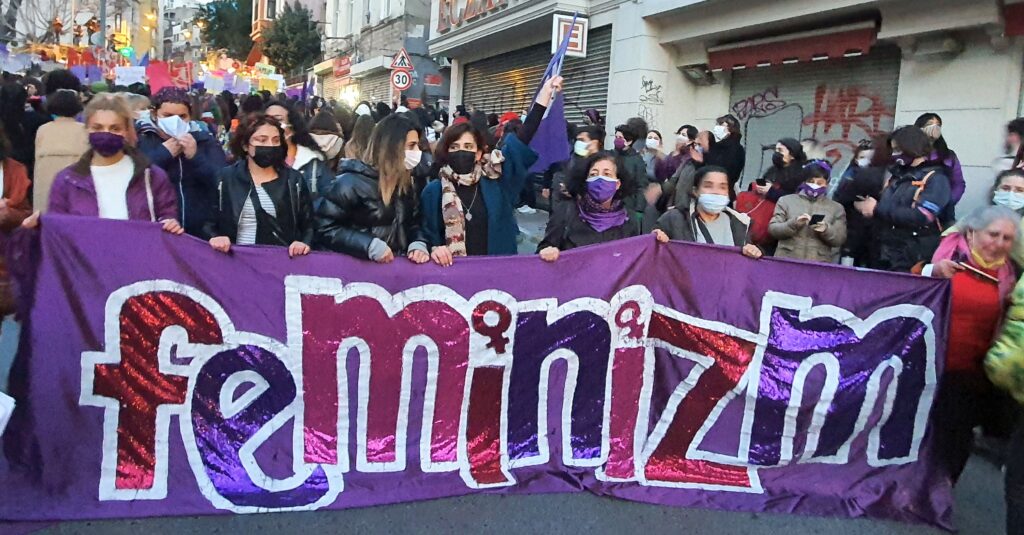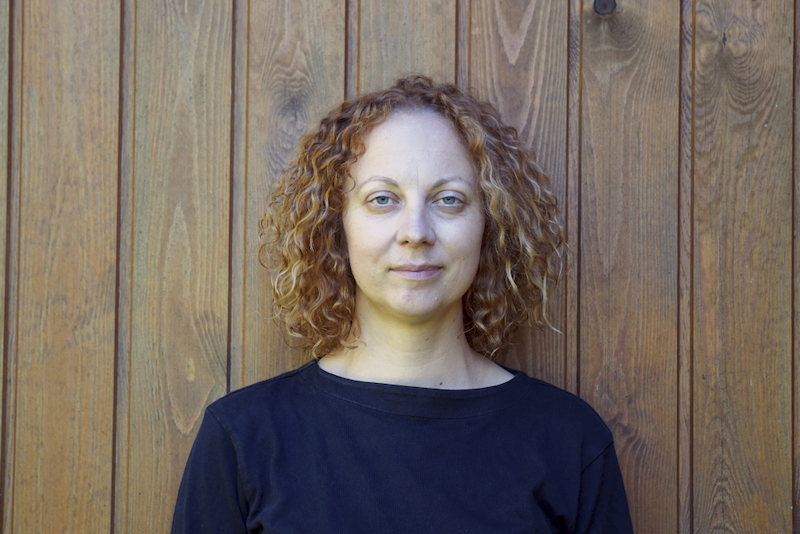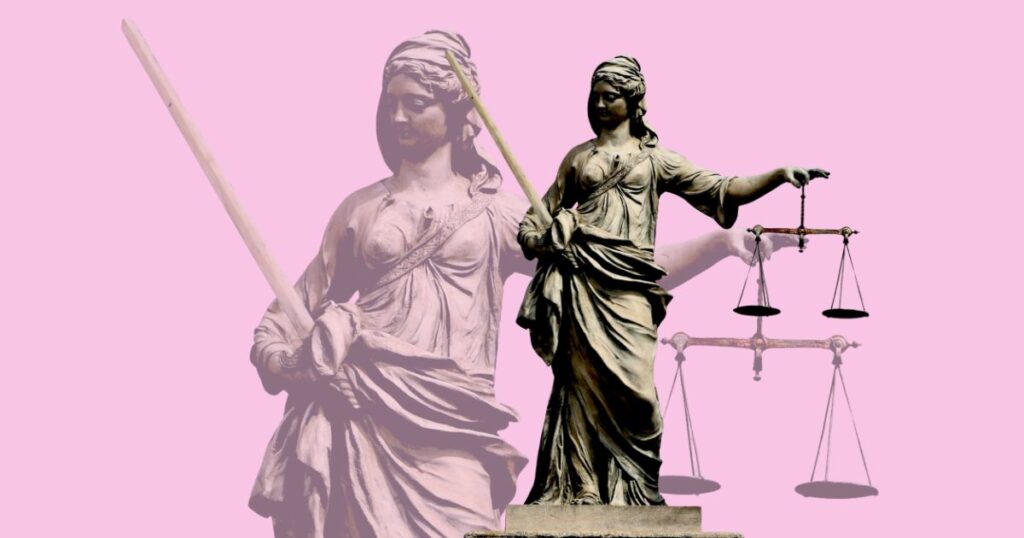Sanem Güner: Treating feminism as a Western invention perpetuates a myth from which Turkish conservatives have benefited greatly
Following the Turkish president’s single-handed dismissal of The Council of Europe Convention on Preventing and Combating Violence Against Women and Domestic Violence, more known as the Istanbul Convention, there is not a better time to discuss feminism and the overall political situation in Turkey in the light of it. Sanem Güner is the Assistant Director of the Hollings Center for International Dialogue, a non-governmental organization established to advance dialogue between the United States and countries with predominantly Muslim populations. Sanem Güner was interviewed by Hille Hanso.
The history of Turkish feminism goes back to Ottoman times and is very viable today. Yet we hear the narrative that claims that equal rights were a top-down policy during the westernization period in the early Turkish Republic and can therefore be seen as patriarchal in nature. Or, being therefore unnatural or unsuitable for the Turkish society – as the nationalist conservatives of today’s Turkey claim? What is your take on this?
There were of course top-down policies that helped women gain equal rights to men first during the Tanzimat period, then during the Republican period (The Tanzimat, Reorganization in Turkish was a modernization period of reforms in the Ottoman Empire that began in 1839 and ended with the First Constitutional Era in 1876. HH). But the narrative of ‘a group of savior men with a western / modern vision came and rescued women from the oppression of Islam and a conservative patriarchal culture’ is simply incorrect.
Before the Tanzimat period, there were women’s groups – not only Turkish Muslim, but Circassian, Kurdish, Arabic, etc. – that were organized and had a clearly defined agenda, and even established their own waqfs, published journals, etc (a waqf is a religious charitable fund based on donated, inherited or purchased lucrative assets, HH). They had demands such as the right to education and being against polygamy. The legal reforms that came with Tanzimat were definitely a step in the right direction. In the first two decades of the 1900s, women’s movements from the west, especially the suffragettes became an inspiration. But at the same time the struggle against a religiously-grounded patriarchy was still on. There are numerous studies that look at the anti-imperialist, anti-colonial, nationalist, internationalist nature of these early movements. So the genesis of the women’s rights struggle goes way further than the declaration of the Republic, and deserves more context than what is being taught in schools today.
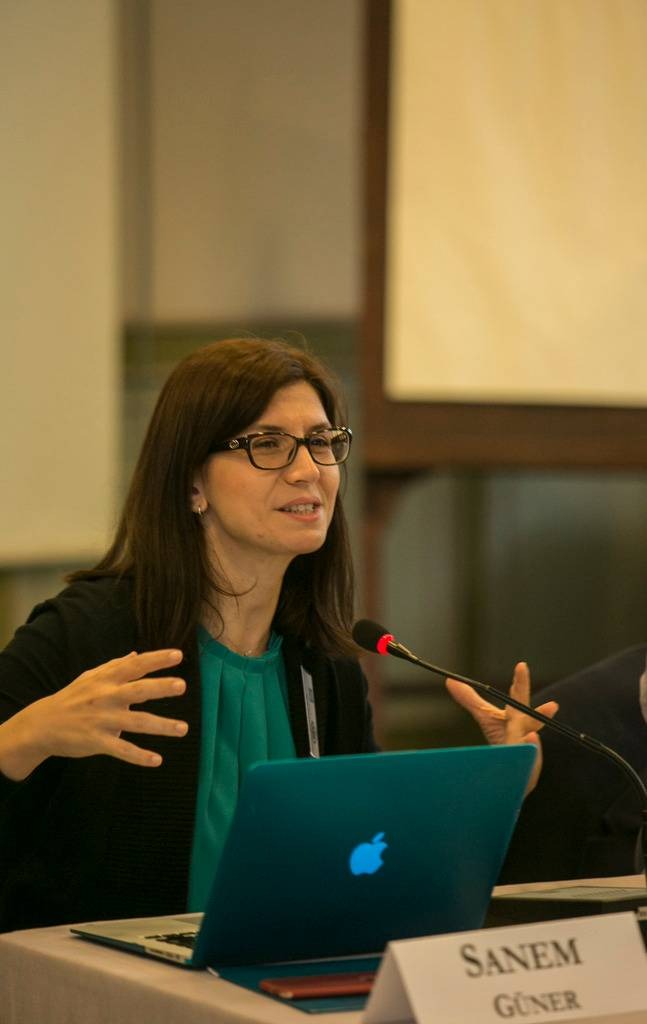
Salem Güner researches cutting-edge issues of mutual importance to the US and the Muslim world. Her expertise includes Turkey-EU relations, women’s political participation in Turkey and the Middle East, Turkish rapprochement with Armenia, and the peace process in Cyprus. In the interview, Sanem Güner expresses her own views, not those of the Hollings Center. Photo: Ulaş Tosun
Can you give some interesting examples of women’s movements at that time?
For example, a lesser-known fact is that when Nezihe Muhiddin and some of her female colleagues set out to establish the Kadınlar Halk Fırkası (Women’s Public Party) in 1923, they were denied, as some of their bylaws were deemed ‘inappropriate’. The group then founded the Turkish Women’s Union (Türk Kadınlar Birliği) in 1924 to advocate for equal citizenship rights; but the founder Muhiddin was banned from politics because of what the group was advocating. In 1934, women gained equality with men in their voting and political rights, and in 1935 the party was deemed moot and shut down. So clearly there is the mentality here that ‘if you need rights, we will give them to you when we want to; you should not organize politically and make too much noise.’
What are the most important legal milestones in the history of Turkish feminism?
- The right to vote in 1934 (in 1930 at the municipal level)
- Turkey becoming party to CEDAW – the UN Convention on the Elimination of Discrimination Against Women in 1986
- This is not a state policy, but Turkish feminists date their genesis story to the ‘anti-beating demonstration’ they organized in 1987. There were a number of major landmarks after that like the establishment of Mor Çatı, the women’s shelter, and improved nationwide awareness on the issue.
- Amendments to the Penal Code and the Civil Code in 2004 and 2007 – noteworthy that this was during the AKP government, as part of the harmonization process to EU Acquis Communautaire. So again, we see that if the political will is there, it doesn’t matter if the ruling party has a religious conservative base or ideology. At that time, Turkey’s aim was EU membership, and it was a great aim that paved the way to such democratizing measures in the country, undertaken by the AKP.
- The content of these amendments, the articles that were changed in women’s favor were roughly the end to immunity / sentence reductions for so called honor killings; the recognition of intermarital violence; and the decriminalization of ‘adultery’, which was described as relationships between men and women out of the wedlock.
- Turkey becoming a signatory to the Istanbul Convention – officially The Council of Europe Convention on Preventing and Combating Violence Against Women and Domestic Violence.
Women’s movements have achieved a raise of awareness. It is now widely recognized that violence does not happen only in the homes of the poor and uneducated, it happens everywhere. (E.g. the case of domestic violence by Sevan Nişanyan, a Turkish-Armenian linguist, writer and intellectual, brought to the attention of the public that intimate partner violence also occurs in the homes of prominent people, HH)
…what about setbacks?
The major setback has been AKP’s withdrawal from the Istanbul Convention, much to the dismay of not just feminists, but also members of the party itself, both men and women. A poll conducted in late summer 2020 showed that only 9% supported this move.
Generally, the lack of more efficient action can also be considered as a setback. E.g. the impunity for gendered violence is still there: there are mechanisms in place which give grounds to a claim that we are a great country for women, but then these same mechanisms bring no result. In cases of reported violence there is no follow up, no repercussions to the perpetrator. This shortcoming is providing a cover for violence. There are cases of women reporting violence perhaps tens of times and still this does not lead to their protection and they get stabbed or killed in the end; or the police are saying to them that their problems are a family matter and they cannot intervene between husband and wife.
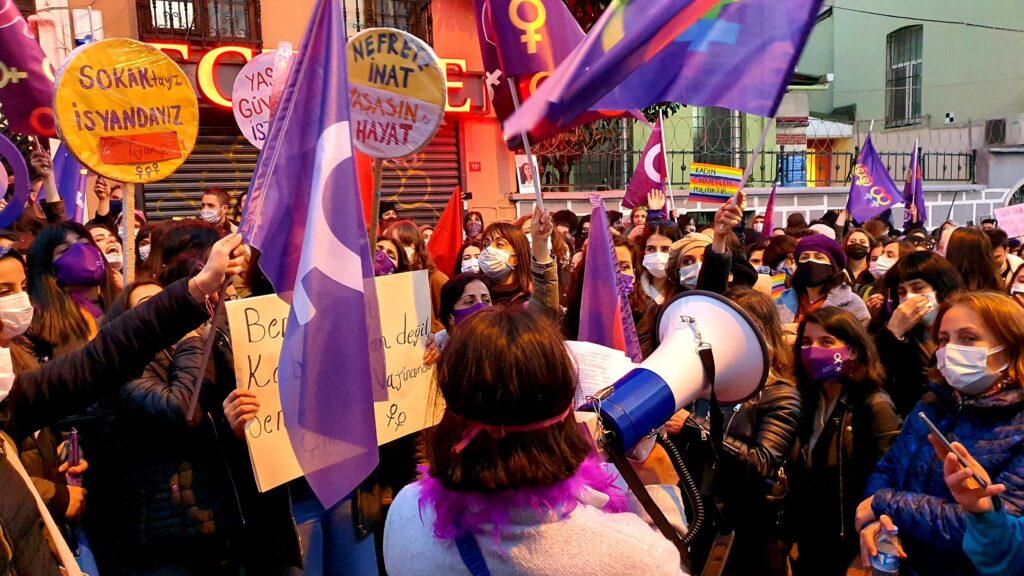
Women’s March in Istanbul, 2021. Photo: Hille Hanso
I have observed how violence is broadly normalized and reproduced via popular culture and famous Turkish soap operas. Isn’t it paradoxical that alcohol and cigarettes are blurred in TV, but guns, GB violence, abuse, threats are normalized as a part of daily life by the same programs? Even love songs are sometimes violent, heroicizeing women for accepting violence as a sign of love and forgiving it… It is not uniquely characteristic of Turkish culture, but it is definitely visible.
Unfortunately this is true and also jealousy is regarded as a sign of love in Turkish culture. If you love, you are jealous and possessive. And then you look at the partner violence and see it is often driven by jealousy. Popular culture feeds this, yes, and unfortunately I don’t see this going anywhere soon, unless there is something that counters – like a law that says that jealousy doesn’t justify violence, it is not self- defense. CEDAW for example is important from this perspective – it refers to universal human rights and women’s rights and we accept that this is above our law. The Istanbul Convention also did that.
Yet, the general attitude of the current government is that international agreements that we are signatory to, or by the same token, ECHRis rulings are not applicable to us. This overall atmosphere is also indirectly regressing women’s rights.
How would you describe the Turkish political landscape from a feminist perspective?
The alliance of the ruling party AKP with the ultra-nationalist MHP has resulted in politics that is increasingly nationalist and anti-European / anti-American in its tone. Religious conservatism is also in the mix, not only in lifestyle issues like consumption of alcohol for example, but even in matters of public finance, as seen in the case of the head of Diyanet (Directorate of Religious Affairs) when he weighed in on the interest rate – exchange rate debate. So overall the political and civic space is extremely limited for advocates of human rights – and women’s rights as part of that–, because any kind of civic advocacy is seen as nefarious and pursuing a non-local, non-national (non-‘yerli ve milli’) agenda.
The party that I would deem the most progressive in terms of its human rights / women’s rights agenda, the People’s Democratic Party (HDP) is unfortunately in dire straits and has been since 2015. Its leaders and activists have been jailed, elected officials that are from this party, including elected mayors, have been removed and replaced by pro-government figures, and the party is currently under threat of being shut down, all because of allegations of connections to PKK, a designated terrorist group by Turkey and the EU. When you look at party programs, HDP is the one with the most tangible and progressive policy suggestions at all levels for women, LGBTQ+, disabled individuals, mental healthcare, etc. It is the only party that has a female-male co-presidency rule as well as equal representation of male and female candidates in elections. And this kind of unifying, progressive, democratic, participatory mentality is unfortunately being pushed out of the political space in Turkey. So I don’t think it would be wrong to say that from the perspective of the majority of feminists, the political landscape in Turkey is dark, narrow, with no light in the horizon.
Let’s discuss poverty as a form of violence and the socioeconomics of violence against women: the participation of women in the labour market is very low in Turkey compared to the European countries. So they do a lot of unpaid work and are often stuck in abusive relationships because of economic reasons. Are there political powers that advocate for women’s financial independence and participation in the labour market and how is this received?
At face value, everyone says women should be economically independent; women should participate in economic life.’ But when it comes to policy nobody walks the talk. The president himself has said on various occasions that Turkish families should have at least three children, since a young population is seen as Turkey’s demographic strength and comparative advantage with Europe. But where are the policies to support a woman with three kids? Parental leave (not just maternity leave!), childcare, flexible work… These are mere dreams when it comes to the bulk of the private sector and even for the public sector jobs. However there have been some positive changes in the Labor Law and other relevant laws that regulated things like equal pay for equal work, nondiscrimination, maternity and nursing leave etc. These are all received positively by the bulk of the society.
A sad reality in this country is women who are paid on a daily basis to do domestic labor such as cleaning, babysitting etc. In recent years there has been an upsurge in immigrants (both legal and illegal) especially from Central Asian countries, Armenia, and Eastern European countries that do these kinds of jobs. Up until recently this work was not regulated, had no job security, and thus was very open to exploitation. The current government did pass a law that regulated domestic labor and recognized it as ‘work.’
I can also tell you anecdotally that in the past couple of decades there has been an increase in public awareness on the need to demolish gender stereotypes such as ‘a woman’s place is the home’, and have women get the education and gain the skills to participate in all professions. This goes hand-in-hand with the global surge in getting women more interested and participating in STEM subjects at schools, training women for better jobs, the movement around equal pay for equal work, etc.
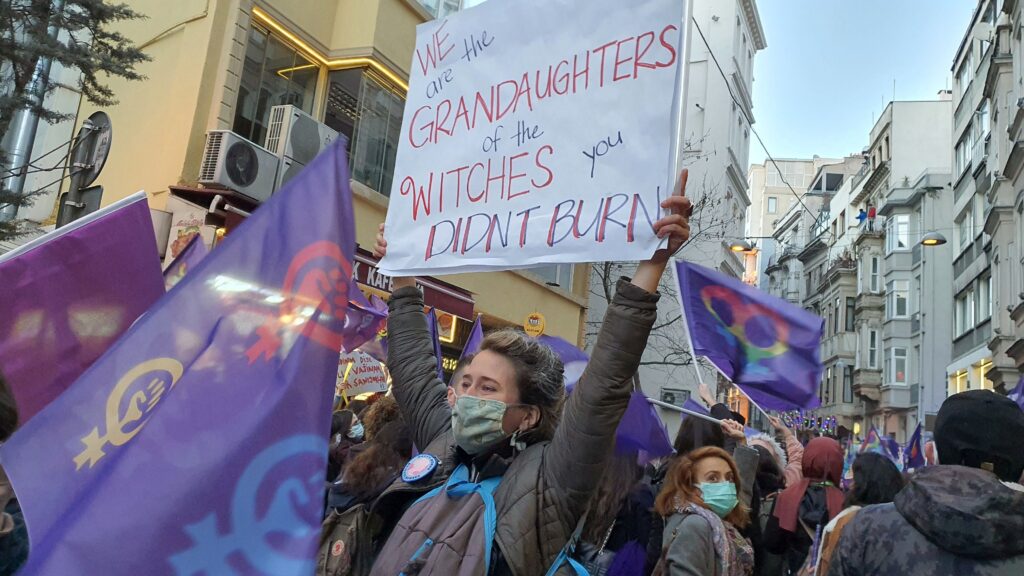
Women’s March in Istanbul, 2021. Photo: Hille Hanso
Out of solidarity, I have been an annual participant of the Women’s March on the 8th of March for almost 10 years and what clearly shows is the resentment to the current political set up. This year, the March focused on minority LGBTQ rights as a response to the AKP’s hate speech against sexual minorities. Can one postulate that the police violence and court cases against the participants is an ideological battle between liberalism and conservatism in Turkey, where the latter holds power?
I agree with that statement, but would even narrow it down to say that it is a battle between AKP supporters and those who oppose it, because not all AKP opposition is liberal. The women’s movement in Turkey has always been vocal and fearless against all kinds of injustice and I don’t call it the Turkish feminist movement, because first, it is not all Turkish, it is also Kurdish (I.e. one of the first civic movements was created by Nebahat Akkoçi, a Kurdish human rights activist and trade union leader from Bingöl, who founded KAMER in Diyarbakir in 1997, which grew and achieved extensive influence in promoting women’s literacy and fighting honor killings and domestic violence, HH); and second, not all women who are active advocates within the movement describe themselves as feminists. Women and LGBTQ+ groups have always taken part within anti-war demonstrations and have been important participants in labor movements. This kind of intersectional rights advocacy is what scares the powers.
The femicides in Turkey are a severe problem and reflect society’s overall violent nature. So called honour killings still exist, although the numbers have fallen significantly. What were the AKP’s reasons behind leaving the Istanbul Convention? What about the Ankara Convention that they adamantly insist should replace it – I can only assume that women are seen through the perspective of family and as a child bearer?
I would add that these femicides also reflect the patriarchal, misogynistic, conservative nature of Turkish society. But despite that, only 9% of the public was in favor of leaving the convention. From what I can see, the only reason behind leaving the Istanbul Convention was that there were some ultra-conservative voices that had an issue with the nature of the convention that doesn’t emphasize concepts like ‘family union’ and ‘children’ and ‘social values’ etc, but is more centered around individual rights. So for instance, violence in a relationship, regardless of whether that relationship is in or out of wedlock, regardless of the genders of the partners in that relationship, could be the subject of a complaint and could result in the violent partner being punished. This was interpreted as the law condoning homosexual relationships and relationships out of wedlock. Of course the loud minority were up in arms about how this convention was against Turkish family values, when in fact by protecting women and ensuring offenders got punished, the convention was protecting the very fabric of society.
Not many details have surfaced about the Ankara Convention, but whenever Erdoğan comes up with the Turkified version of some international standards or criteria (remember when he said in 2003 that if the EU did not want to accept Turkey, then Turkey would do away with the Copenhagen criteria and adopt Ankara criteria!), this is bad news. The gist of it is that the conservative mindset of Turkish society – and here I’m not just talking about the AKP, or people who are religious – have a problem with international human rights standards and think that these are incompatible with Turkish ethics or values. The burden again falls on rights advocates to break the chains of cultural exceptionalism and root for universal human rights as the anchor of a country’s laws.
When I came to Turkey in 2012, I saw a country that was democratizing. I saw young women proud of who they are when marching in the demonstrations. Now it almost feels their newly achieved rights are being taken away from them. Something that is happening in Estonia but also in Turkey is that conservative female politicians, whose aim is to advocate for the “traditional roles” of women in society, are gaining public attention. The polarization is intense. What kind of debates does this bring to feminist discourse?
I think it’s really important to be able to bridge the gaps among women when it comes to uniting them under the umbrella of a movement. So for instance when women lobbied the government in the early 2000s to change the penal code and civil code, they were able to form a united front of conservatives and liberals, left and right.
There are individuals in Turkey, like there are in the rest of the Middle East, who define themselves as pious, practicing Muslims and feminists. These Muslim feminists are awe-inspiring in my opinion, because they are rebelling against the widespread narrative and practice of Islam as inherently oppressing women and as inherently misogynistic, and saying that like we do with other teachings of Islam, we need to look at its stipulations on women under new light – the light of the 21st century. I think it’s a breath of fresh air when I see a student wearing a headscarf, defending her classmates who were arrested at Bogazici University because they made a caricature out of the picture of the Kabe.
Indeed, lately I have been hearing more Muslim women saying that “I am religious but this doesn’t make me conservative or backwards”. Where is Turkish feminism going in the light of all this?
Something I see as a bothersome trend is that feminism in Turkey – or let’s call it the women’s movement as some people prefer the word to feminism – is very much divided. And not only along the chasms that are present in Turkish society at large like Turkish vs. Kurdish, or rich vs. poor, or urban vs. rural, or conservative vs. liberal. There are divisions even within groups that are at face value homogeneous in terms of ethnicity, socioeconomic background and political tendencies. And these divisions are unfortunately played out in the worst of platforms: social media. One example is the recent debate around trans women and all-women spaces, that also branches out into debates about nonbinary gender identifications and gender fluidity. This is of course not particular to the Turkish feminist scene, and I think it’s healthy to have such debates. But the way social media works, these opposing views are almost encouraged to battle it out like gladiators, in the way that would give the most harm to the other side. Of course, this is damaging and detrimental to feminists in general.
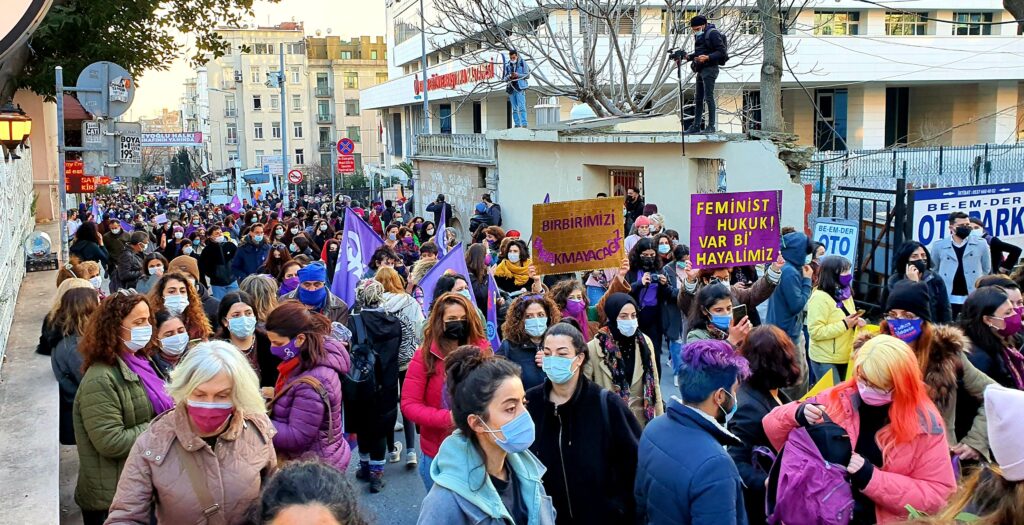
Women’s March in Istanbul, 2021. Photo: Hille Hanso
As the director of the Hollings Center, what are your observations that have emerged from dialogues with people from other Muslim-majority countries? What are the trends in human rights, and more specifically women’s rights, in these rapidly changing societies? I believe that societies in the Middle East and North Africa are changing rapidly and follow global trends. It is not always helpful to focus on the religious prism, as we often do in Europe.
Unfortunately there is a regressing trend in human rights advancement across the globe, and Muslim-majority countries are no exception. Women have always been able to raise their voices even at the hardest of times – under colonialism, war, occupation. Although we name these ‘women’s movements’, they often are born from a context of being anti-oppression in the broadest definition of that word. Here I’d like to mention and pay tribute to the awe-inspiring women’s movements in the Arab world. The late Nawal El Saadawi said in a BBC interview that no individual ruler can bring rights to women, or to anybody else for that matter, and that women will have to organize themselves. I think one of the tenets of Orientalism is to think of women living in Muslim societies as oppressed and second class. While it is true that some interpretations of Islam may allow this sort of treatment, there is always the other side of that medallion, which is women’s rebellion against oppression. And if we do not see that, we are not seeing the whole picture, which paves the way to narratives like ‘feminism was imposed on Middle Eastern women’ that are misleading.
The gist of the matter here is that even in places where the imprint of Islam is much stronger than in Turkey, there have always been women’s movements, long before ‘the West’ made it a thing and gave it a name. I think women’s rights as an inherently western or modern invention is a myth, and one that conservatives have exploited much to their advantage.
My work bringing together experts in different sectors to discuss solutions to common problems has shown me that the more we streamline women into discussions on issues like security, development or environment, the better our policies are.
I think we should stop seeing women in Muslim countries by default as victims and instead support their ongoing struggles. How can European feminists and liberals support the struggle of Turkish women’s rights activists? One thing I would suggest is to acknowledge and appreciate the whole rainbow of minority, feminist and other human rights movements of the country and agree that women face similar problems as elsewhere: the glass ceiling, gender pay gap, sexual harassment, household work burden, etc. How can we cooperate?
It would be important to express solidarity, create better linkages such as European Women’s Lobby, and be informed and work on training and capacity building, and support women’s cooperatives. When abortions were finally made legal in Argentina, it had effects here – because it raised hopes that unifying helps us succeed even as far as South America. Women’s rights advocates are not just “angry women”, they are striving for better legal protection, for better opportunities, for equality. I do think there is something to be said there to the general society, let it be liberal or conservative. It is not okay to NOT have equal pay, equal opportunities, equal parental leave and talk of household work as if it is a women’s issue. No matter if you are in Estonia, Turkey, USA or Iran, these barriers or invisible walls are similar everywhere. It is not easy to demolish these centuries’ old biases and political, social and economic structures, but we have to do it. It is the 21st century.
